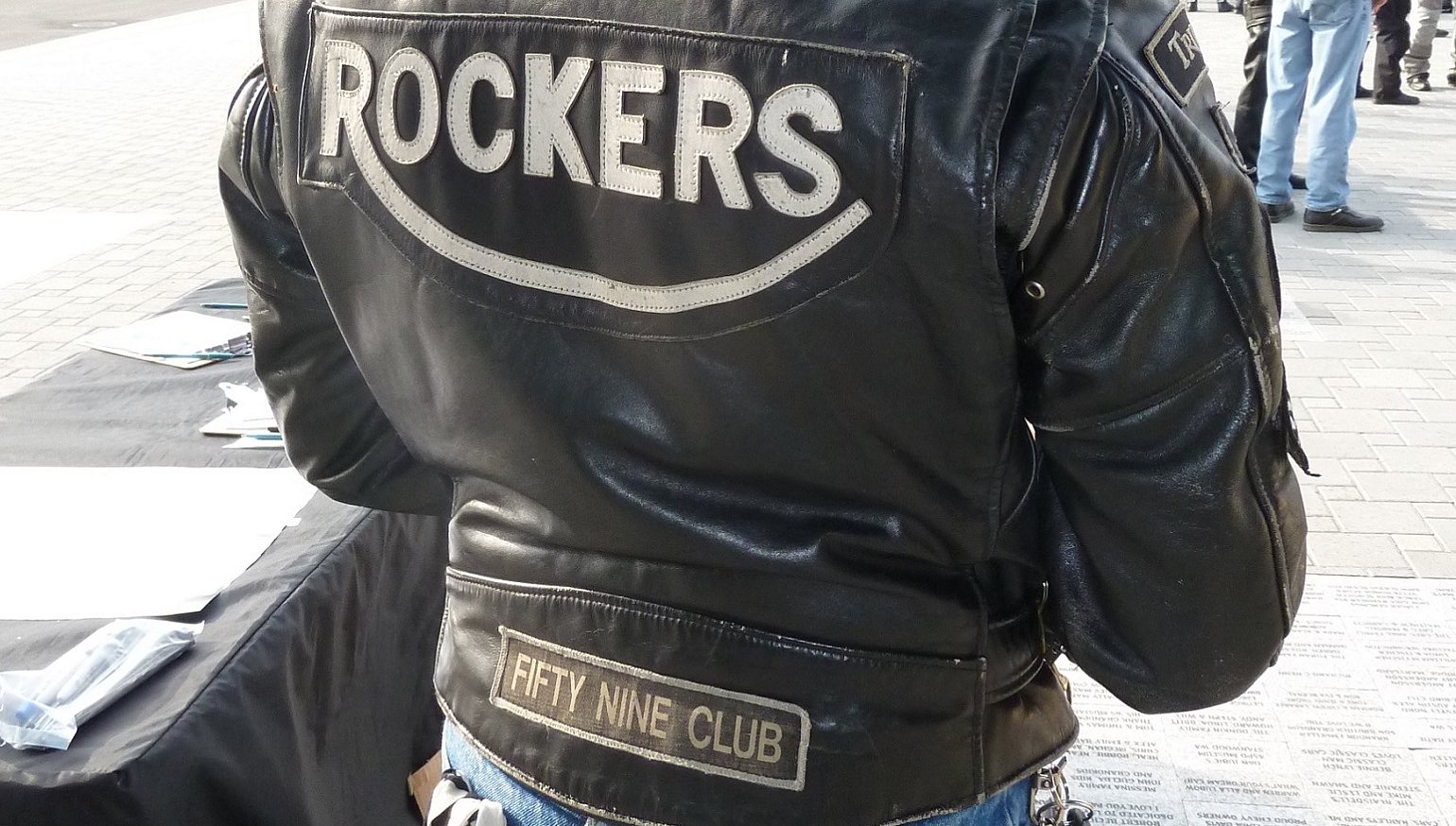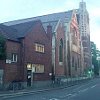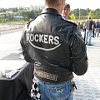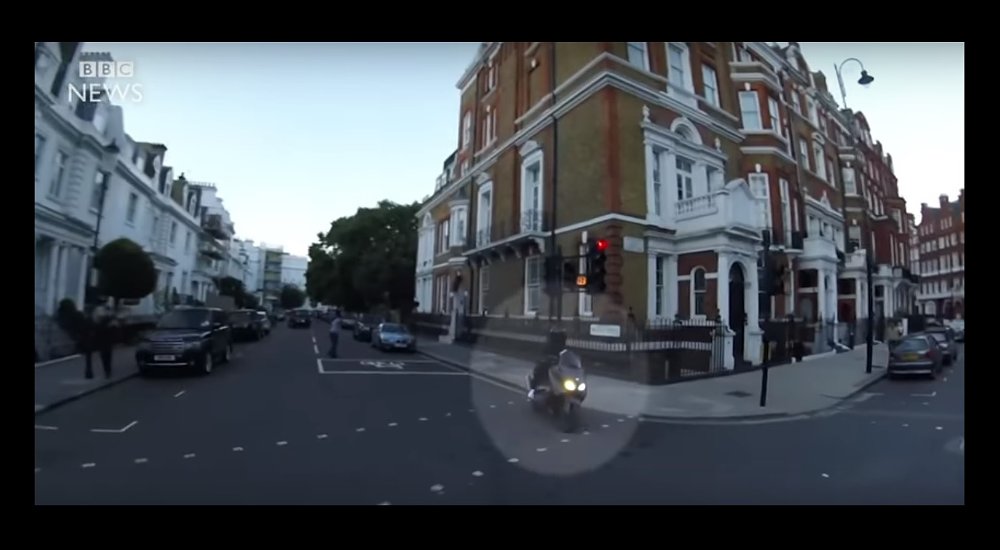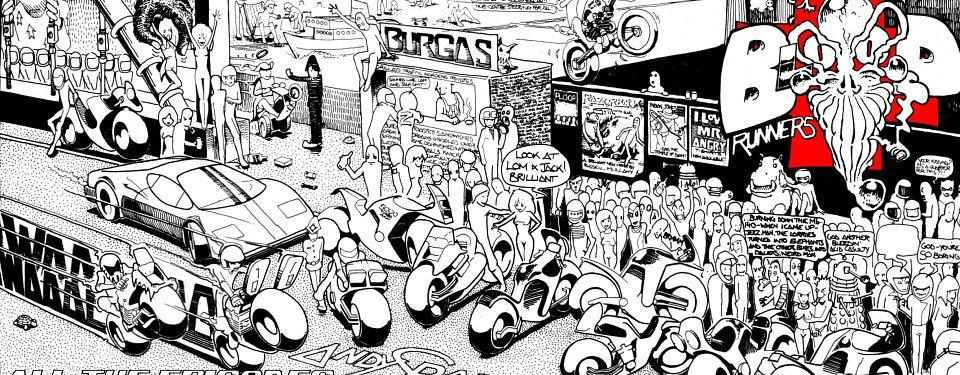On Saturday, members of England’s definitive Rocker motorcycle club will celebrate the club’s 60th anniversary with two group rides.
One ride will begin at the club’s current headquarters in Hanwell (a neighborhood in west-central London) and the other ride will start at the famed Ace Cafe, on London’s North Circular ring road. Both groups will meet up at London’s St. Paul’s Cathedral.
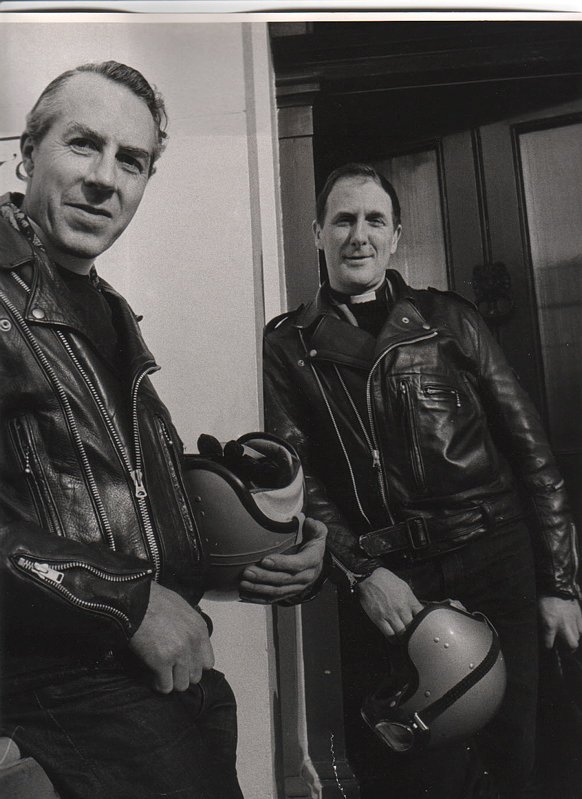
In 1962, another priest, Father Bill Shergold, dropped by the Ace Cafe on his Triumph Speed Twin. At the time, the Ace attracted a huge crowd of young men on café racers, known as "ton-up boys." Shergold promoted a church service for motorcyclists and delivered a sermon comparing bikers to knights in armor. Even he was surprised how well it went over. It must’ve been a slow news day, because his church service was also covered by the BBC and several newspapers.
Shergold created a motorcycle section at the 59 Club. Most of the time, it was just a place to hang out, listen to a jukebox, play snooker, foosball, or ping pong, and drink free coffee, but it took off. Although the club also catered to a few other interests (there was section devoted to scuba diving!), the motorcyclists quickly came to dominate.
Every biker in London knew about “The Vic’s Caff” and most appreciated it as one of the few places where "young tearaways" on noisy bikes were actually welcome. After a couple of years, the club relocated to Paddington when Shergold was reassigned to that parish.
Although the 59 Club certainly helped to rehabilitate bikers’ reputations across London, in the spring of 1964 the Rockers were again in bad odor after a series of clashes with Mods, a group with subtly different tastes in music, and wildly different tastes in dress and motorbikes.
Although the Rockers rode British motorcycles, they listened to American rock 'n' roll and rockabilly — singers like Gene Vincent, Eddie Cochran and Elvis. They dressed like Marlon Brando in "The Wild One" (although few had actually seen the movie, because it was banned in the United Kingdom for over a decade!). Nowadays, we might call that cultural appropriation.
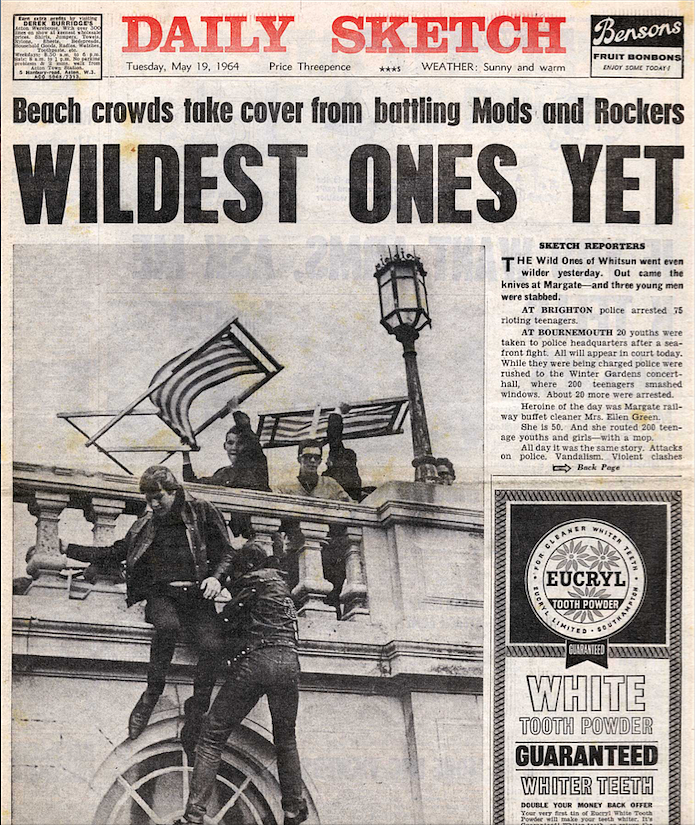
The two groups got on each others’ nerves throughout the early 1960s. The 59 Club never looked for trouble, but it was dangerous for any Rocker to find himself outnumbered by Mods, or vice-versa. Random beat-downs evolved into brawls, as both groups traveled to beach towns over the Easter "bank holiday" in late March, 1964.
Damage and injuries were quaint by today’s standards, but English newspaper coverage was sensational. That set the stage for the next holiday weekend, in mid-April, when thousands of young people gathered in Brighton. A series of full-scale riots ensued in Brighton and Hastings. The rivalry later inspired The Who’s concept album, Quadrophenia.
A highly regarded sociologist named Stanley Cohen later debunked British media treatment of the Mods versus Rockers conflicts. Cohen argued that neither group was any more prone to violence than young, blue-collar blokes had been throughout the 1950s. They weren’t any worse than the soccer fans of the day.
In spite of media approbation towards bikers generally, the 59 Club guys were always thought of as "the good ones." The 1960s and ’70s were the club’s heyday. What had begun as a London club attracted members from across the U.K. Many bikers made pilgrimages from all over Europe, as the only ways to join and get the 59 patch were to either show up at the London club in person or sign up at the club’s booth during the annual Earl’s Court motorcycle exhibition.
At its peak, the 59 Club had about 20,000 members and published its own magazine, The Link. There were sometimes as many as 1,000 motorcycles parked near the church. For big dances and parties, the club booked Alexandra Palace, a huge entertainment venue in North London.
If you have watched "The Crown" on Netflix, you might expect that Queen Elizabeth’s bad-girl sister, Princess Margaret, and her motorcycle-riding husband, Anthony Armstrong-Jones (aka Lord Snowdon) occasionally dropped in — and you’d be right. In 1968, the U.K. Board of Censors finally relaxed its ban on "The Wild One," and the first U.K. screening was at the club.
The core membership always favored café racer style bikes and, unsurprisingly, they were big racing fans. They organized rides to major races in England and always sent a big contingent to the Isle of Man for the TT. (When I raced there in 2002, there was still a 59 Club barbecue at the Queen’s Hotel in Laxey, which was just a couple of miles from the paddock.)
When Father Shergold was assigned to a distant parish in Dover, he started an offshoot named the 69 Club. Presumably, since he was a man of the cloth, that was a reference to the year. The Rockers’ other great gathering place, the Ace Cafe, also closed in 1969 — a victim of increasingly affordable small cars hurting U.K. motorcycle sales (and, perhaps, public confusion of Rockers with Hells Angels-style criminal bike gangs, then on the rise in Europe).
At that point, the club was nominally run by Father Graham Hullett, another Anglican priest who’d been on the scene almost since the beginning. By then, the club also had a paid administrator, Mike Cook, who ran day-to-day operations. The club eventually leased its own facility, getting most of its operating budget from the borough of Hackney, in the form of a "council grant." During the Margaret Thatcher era, that taxpayer support disappeared. Attendance and activities dwindled with the club’s bank account. By the early 1990s, the 59 Club was a shadow of its former self.
Just in the nick of time, however, there was a bit of a Rockers revival. The resurrected Triumph brand made it far easier for non-mechanics to own a reliable British twin; Mark Wilsmore organized an Ace Cafe reunion in 1994, and reopened the café a few years later. Today, "the Nine," as members call it, has two clubhouses in London. One is in Plaistow near the original location. The other is in west London, in another church associated with Father Shergold.
Both of the original priests, Bill Shergold and Graham Hullett, have since died, but the club has always maintained an Anglican figurehead. Currently, that’s Father Sergiy Diduk, an avid motorcyclist who preaches at All Saint’s Church in Hanwell. It was the Bishop of London himself who offered historic St. Paul’s Cathedral to the club for a 60th anniversary gathering.
The club’s website lists several other events around London this spring and summer, so it seems to be going fairly strong again. The Nine also has sections in several European countries, and in Japan, Southern California and Chicago.
Although the Rocker style prevails at 59 Clubs around the world — and there’s still rockabilly music on the jukebox in London — all riders are welcome. There’s no probationary period; you can be a full member in minutes.
That said, if you’re just coming to sign up for the first time and you’re riding a Vespa, maybe park it around the corner.




